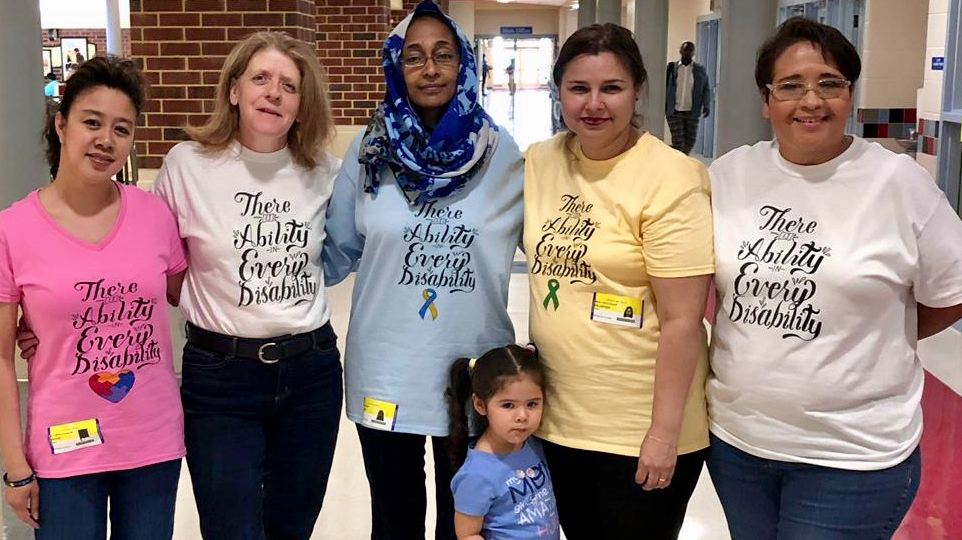Mothers of Children with Autism Promote Disability Awareness, Acceptance
Bridgette Adu-Wadier
Children with autism and other disabilities have a unique experience at T.C., as they are apart of the special education community and are often misunderstood by their typical peers. Five mothers of children with disabilities — Mildred Rivera, Yolie Carrasco, Isabel Garcia Rosell, Omeima Khidir and Heather Trammell — started doing school presentations to educate the student body about the experiences their children have as autistic students. They presented to the T.C. Health and Medical Sciences Academy on Tuesday, April 23, continuing at Hammond and the Alexandria Police Department.
The group has been teaching ACPS about autism awareness for the past ten years and they hope to increase others’ acceptance of their children’s differences.
“It started when a former assistant principal at John Adams asked me to speak about my boys,” said Rivera. “The students knew us because we were also the Reading is Fundamental co-liaisons at John Adams for 6 years. Yolie and I started talking about our sons.”
Khidir, Rivera and Carrasco won the 2017-2018 ACPS Outstanding Volunteer Award for their disability/Autism awareness assemblies.
“Some believe that autism is a developmental disorder….Right now…nobody knows what causes it,” said Rivera. “Some people think it’s vaccinations; some people think it’s caused by bad parenting.”
Mildred Rivera has two sixteen-year-old twin sons, Brandon and Christian, who have autism. Brandon is a sophomore at T.C. and Christian goes to the Center for Autism and Related Disorders Academy, a private school for students with autism spectrum disorders. Carrasco has a twenty-one-year-old son, Marcos, who attends a different school. Trammel’s daughter is a seventh grade student in Fairfax County Public Schools.

“Every student is really different,” said Trammell. “Every person with autism is very different from somebody else with autism.”
She, along with the other mothers, supported this by describing the different habits and interests that their children have. Signs include vocalizations that vary depending on their mood, meltdowns, and sensory overload, when too much sensory input make it difficult for some autistic people to relax, focus or participate in normal activities.
Meltdowns are periods of uncontrollable frustration that autistic people experience, sometimes triggered by sensory overload. The difficult part about meltdowns is that it’s not always easy to discern what is wrong.
“Maybe they’re not feeling well and they can’t tell you,” explained Rivera. “There’s always a reason for a meltdown, but unfortunately, sometimes, you can’t figure it out.”
“People say our kids don’t feel. But they actually feel a lot,” said
Trammel also noted how her daughter only eats a narrow variety of foods.
“There’s something about bread. It has to be a certain kind of bread,” said Trammell. “It has to be a certain kind of sourdough bread. She likes sandwiches and bread. But not that kind.”
“Marcos is very socially awkward, enough to get him suspended,” said Carrasco. “He would take a sentence from a movie and try to put it in a conversation, but it wouldn’t connect. But he’s trying to socialize.”
At the end of their presentation, the moms urged the Health Sciences students to be more aware of the “life changing” impact of a diagnosis, as well as accept — not just tolerate — students with disabilities.


